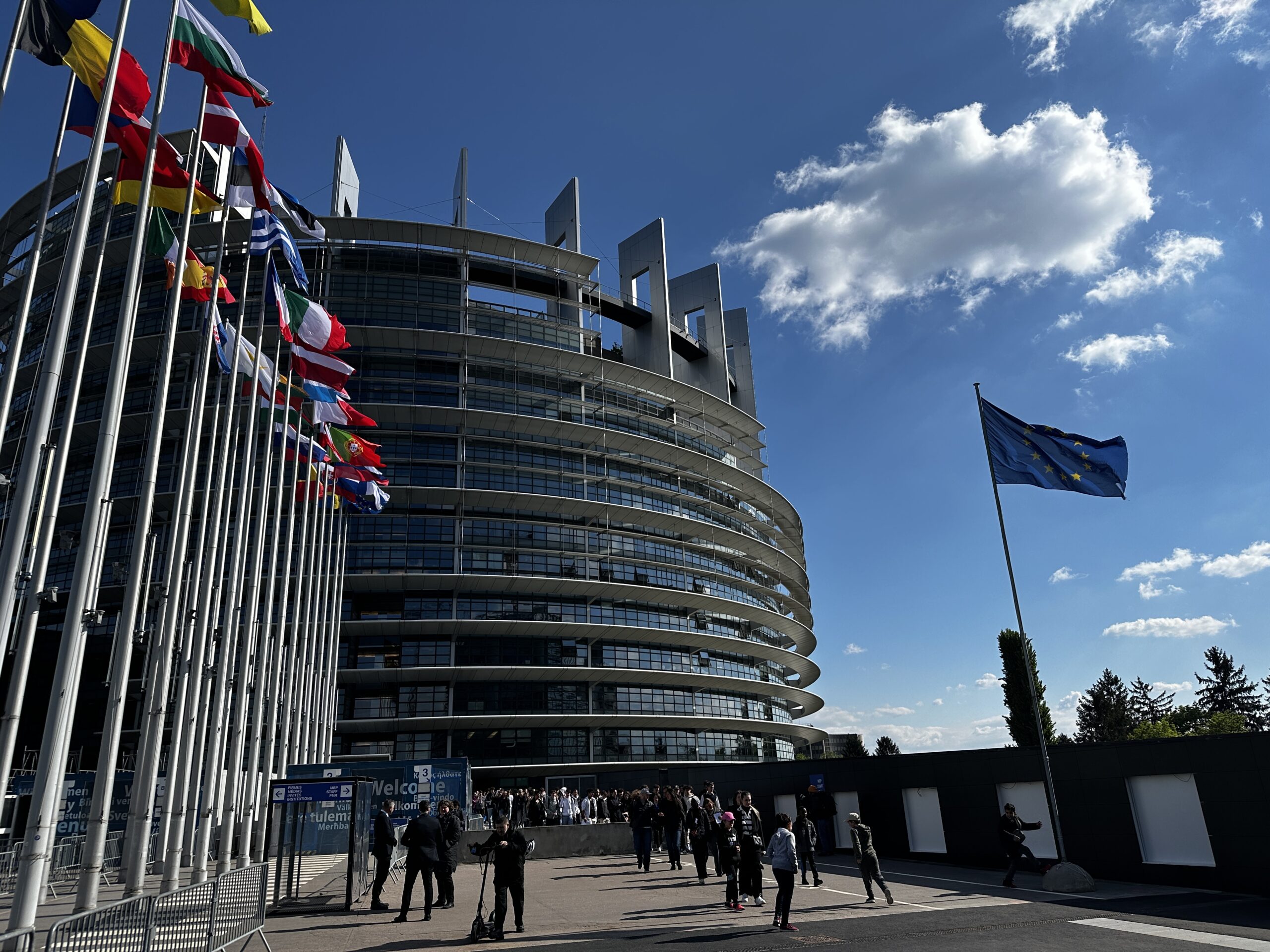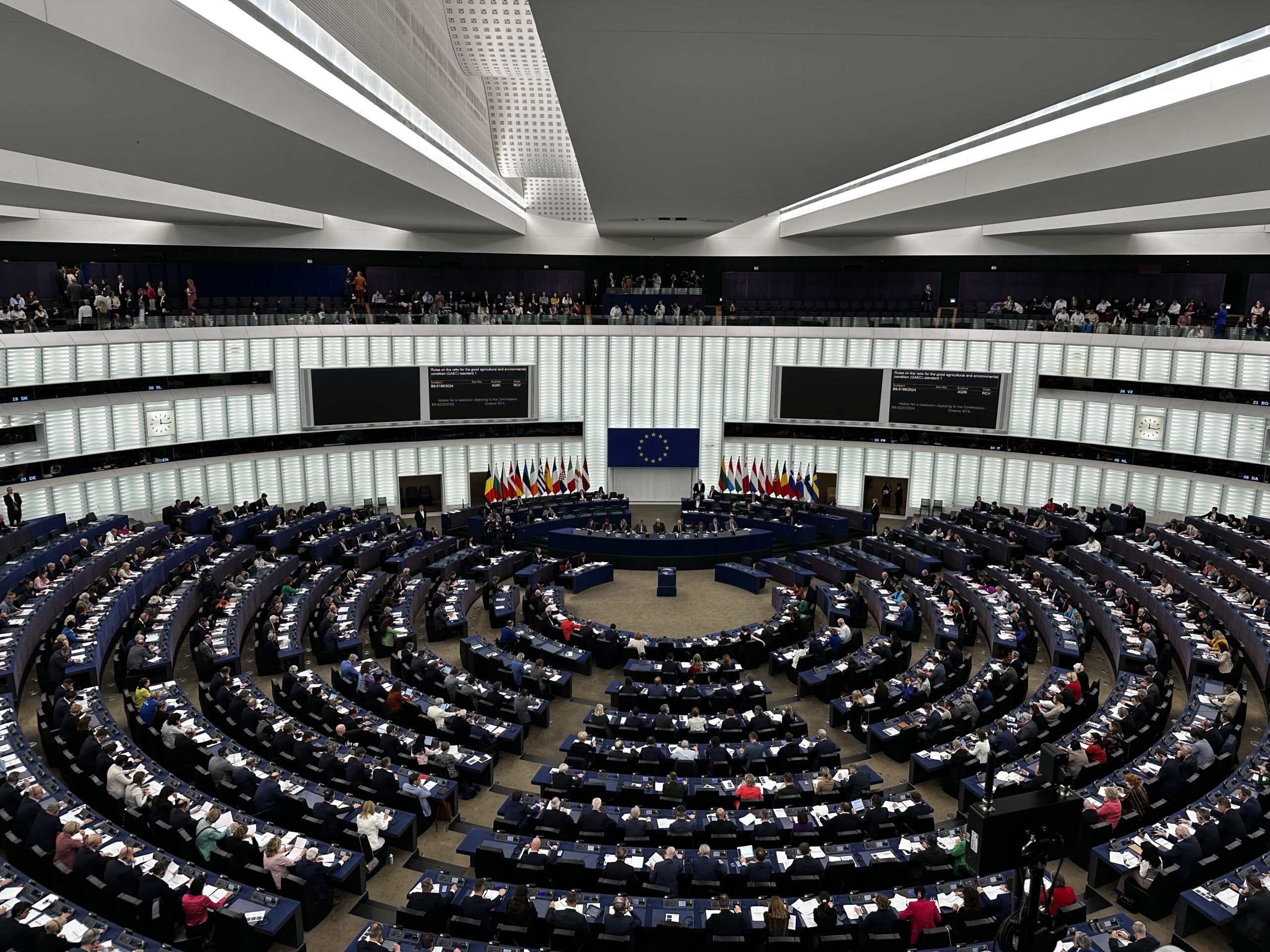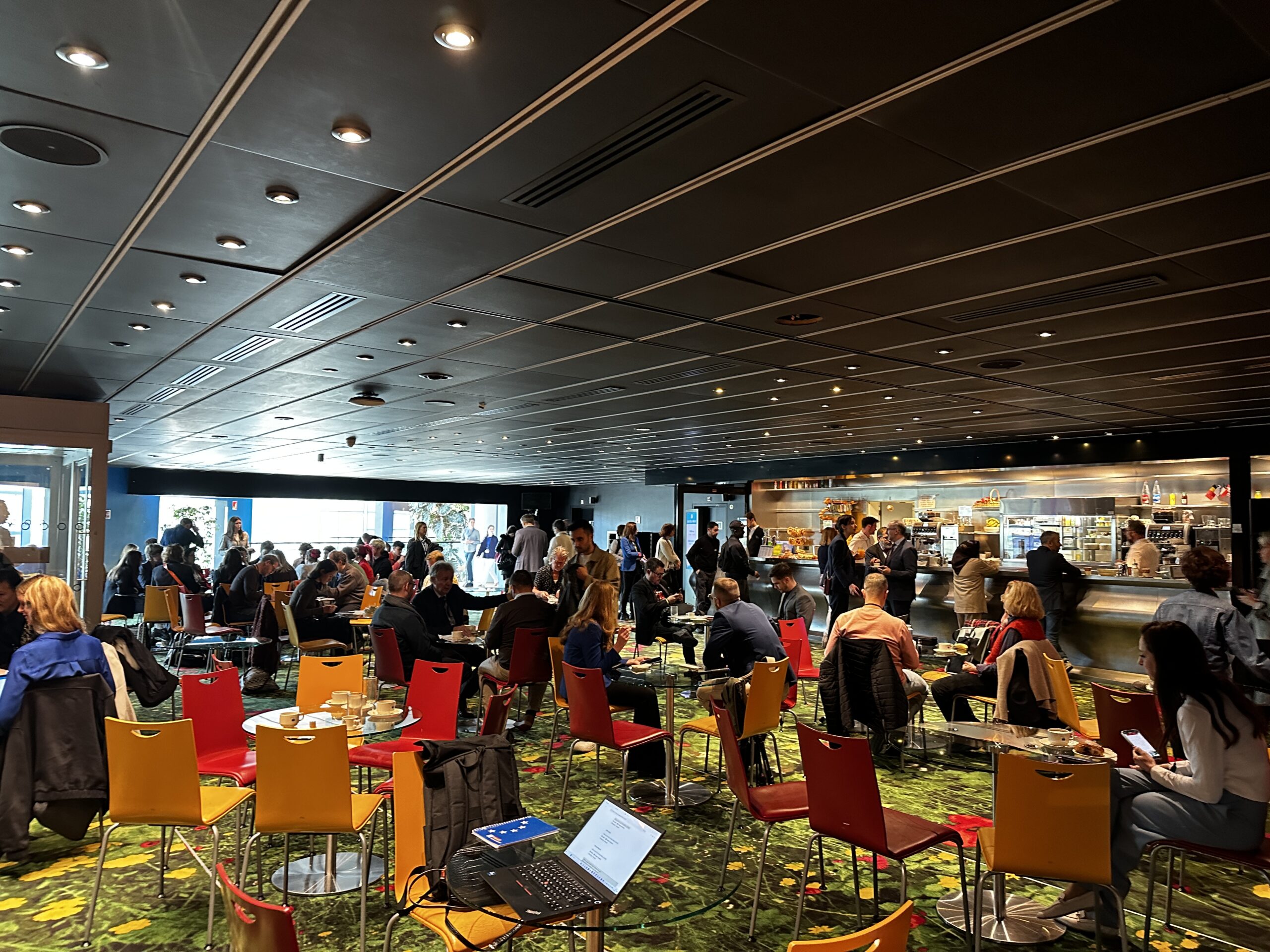Europe passes cleantech law everyone agrees is not enough
Latest News
The main entrance of the European Parliament in Strasbourg, France in April 2024. Photo credit: Anca Gurzu.
STRASBOURG, France — It was the last big hurrah before the upcoming European elections and a timid first hurrah for Europe’s cleantech manufacturing ambitions.
Members of the European Parliament (MEPs) gathered last week on the outskirts of this iconic French city in a modern building architecturally inspired by a Roman amphitheater for one final plenary seating before the end of their five-year political term. Amid a flurry of a record-number of scheduled votes, members gave the green light to a new law intended to help establish the European Union as a cleantech manufacturing powerhouse.
Supporters say it’s a good step forward, easing business decisions and showing Europe is acting. Critics say it’s a missed opportunity because the law is not targeted, comes with many opt-outs and lacks financial firepower.
Everyone agrees it’s not enough.
The Net-Zero Industry Act (NZIA) is seen as the EU’s key response to the United States’ 2022 Inflation Reduction Act, a law that provides hundreds of billions of dollars in subsidies and tax credits to encourage cleantech companies to do business on American soil. Europe’s new law is meant to make it easier to get a manufacturing hub off the ground for key clean technologies by easing permitting procedures, making access to financing easier and introducing a set of sustainability criteria aimed at favoring domestic European production.
If anything, the law represents a much bigger debate dominating the political discourse ahead of the European election in June on how the 27-member bloc can get its industrial groove back to boost its massive European Green Deal climate policy initiatives. The bloc’s goal is to remain competitive amid an intensifying global cleantech race with the U.S. and China, while priorities shift more toward defense spending as Russia’s war in Ukraine drags on next door.
“If we don’t have a competitive industry then the Green Deal is doomed to fail,” Christian Ehler, a German MEP from the center-right European People’s Party and lead negotiator on the file, said during a debate in the hemicycle, the Parliament’s legislative chamber.
“The key technologies that we need to focus on are migrating to the U.S.,” he said, before adding in a more celebratory tone about the NZIA: “But better late than never.”

Inside the plenary session at the European Parliament in Strasbourg, France in April 2024. Photo credit: Anca Gurzu.
Although the MEPs approved the law with a strong majority, some members still opposed it.
Bas Eickhout, a Dutch MEP from the European Green Party, who voted against the law, said it’s not actually strategic despite its stated purpose.
The law “is giving the false pretension that we have an industrial policy — sorry, this is not industrial policy,” Eickhout told me in the MEPs’ private members’ bar during a coffee break.
One of his main criticisms of NZIA is regarding an official list of net-zero technologies accompanying the law meant to spur manufacturing. The list became the target of political infighting as countries tried to make sure their preferred technologies made it in.
As a result, it became too broad — the opposite of strategic, said Eickhout. Supporters counter that a broad list allows the bloc to keep its options open.
The list includes 42 entries, ranging from wind and solar to hydrogen and nuclear technologies — but also a general entry for “renewable energy technologies, not covered under the previous categories.”
“There’s no prioritization. We’re again missing the opportunity to focus — I’m really annoyed by that,” he said before dashing off to his next meeting.
The plenary of the European Parliament is always busy. But this time, with elections around the corner, it was even more so.
Staffers strode across narrow footbridges in the open-air style building between meetings. Packed glass-walled elevators were almost in constant motion, carrying EU officials and lobbyists. Foreign correspondents, often in front of a TV camera, waited for political personalities to emerge. The press room was at capacity.
The coffee bars, dotted with colorful chairs, were full. Nearby, parliament officials handed passersby blue election tote bags with the logo “use your vote.” Young visitors mingled, posing with the EU flag. Security guards whispered to each other about how busy it was.

Foreign correspondents in the specially-designated media zone inside the European Parliament in April 2024. Photo credit: Anca Gurzu.
Amid all this buzz, I also met with Morten Petersen from Denmark, the vice-chair of the Parliament’s industry committee and member of the liberal Renew Europe Group.
He said he understands the criticism that the list of net-zero technologies ended up a bit overcrowded “like a Christmas tree,” but said NZIA is still a valuable law.
“The biggest merit of it is that it really focuses our attention on competitiveness and what we’re up against,” Petersen told me.
But financing remains a problem, he admits, with the EU unable to match Americans’ comparatively fast and predictable tax incentives. NZIA doesn’t come with long-term cleantech financing.
The EU agreed earlier this year on a fund to support green energy technologies, but its scope was broadened during the negotiations to also include investments in digital and biotech sectors. Notably, it also doesn’t include fresh sources of funding as initially proposed, as national governments pushed back amid increasing defense-related priorities.

The press bar in the European Parliament in April 2024. Photo credit: Anca Gurzu.
In an open letter last week to lead EU election candidates, the business lobby Cleantech for Europe complained NZIA “lacks key elements to make Europe ‘the home of cleantech manufacturing,’” and called for the creation of a targeted cleantech investment fund after the elections.
EU leaders, representing the heads of the 27 member countries, are expected to lay out the EU’s strategic goals for the next five years in June. It’s a key moment set to define the bloc’s direction for the next political cycle. This, and how well pro-climate candidates fare in the European elections will give a sense of what’s next for Europe’s cleantech industry.
“We will need a cleantech fund for the future in the next five years for sure,” Nicolás González Casares, a Spanish MEP from the Group of the Progressive Alliance of Socialists and Democrats group, also told me in Strasbourg.
I challenged him on how confident he is that fresh cleantech cash will be available considering countries’ stretched budgets in an environment where the Russian threat is forcing countries to spend money on weapons.
“Believe me, I’m confident, because it’s a necessity for Europe,” he said.
Editor’s note: Cleantech for Europe is supported by Breakthrough Energy, which also supports Cipher.